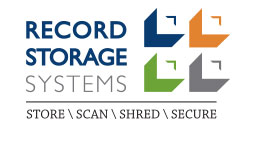Law Firms Fast Track to Digital Transformation – Is Your Firm Ready?
Law firms and their digital transformation journey
The push for digital transformation in the legal industry is being spurred by several factors, including the increased need for remote access to information and digital information sharing. If you had to access critical legal documents remotely right now, would you be able to?
Some courts have begun to mandate requested documentation be transferred digitally between parties in order to avoid massive amounts of paper files being generated and copied. By mandating electronic information sharing, courts are able to decrease costs and become more efficient through developing electronic filing policies and procedures. Attorneys quick to adopt new technology and digitization are seeing improvements in efficiency, reduction in cost, better communication with clients, and improved information management within the firm.
Why does a law firm need a document digitization strategy?
When we talk with lawyers looking for a document scanning and digitization solution, we typically find that that they’re currently storing a multitude of hard copy records in-house or in a self-storage unit (which we do not recommend) and are realizing the inconvenience and wasted expense that hard-copy document storage and continued paper generation are causing their business.
We understand the amount of paper records attorneys manage on a daily basis. Anything from case documents, contracts, court pleadings, wills, and estate planning, to internal documents such as tax and financial records, HR files, accounting records, legacy records, and more.
A record digitization strategy can help firms prioritize which types of records need to be electronic in order to operate more efficiently in today’s digital landscape. The way attorneys communicate with clients, third parties, courts, etc… can be more efficient, secure, and convenient with an electronic document conversion strategy.
Benefits law firm document scanning and digitization:
- Access case documents 24/7 whether in the office or remote
- Easily retrieve documents in an instant from the convenience of your desktop
- Share records and collaborate with others even when working from different locations
- Quickly identify and retrieve a specific file rather than searching through piles of boxes
- Accelerate the discovery and research process by quickly searching for keywords when needed
Here’s how attorneys can start digitizing legal records:
- Scan incoming mail and route it electronically to the intended recipient. This fosters collaboration among employees whether working remotely or in the office.
- Implement an electronic document management software that enables you to automatically route paperwork, build customized workflows, search and retrieve digital files, and maintains an audit trail of all activity.
- Utilize an offsite document storage service for legacy records. Document storage companies typically offer a Scan-on-Demand option which will allow you to request specific files you need electronically with ease.
- Update your record retention policy to include a document scanning component. Establish policies that support document scanning efforts within the firm by identifying opportunities for digitization on a quarterly basis.
- Don’t be a document hoarder! Just because you’re still hanging on to old records doesn’t mean those records are good candidates for document scanning. Employ a reputable document shredding service to securely and ethically destroy legal records that have outlived their usefulness.







